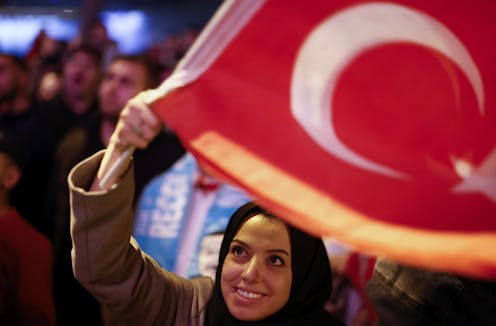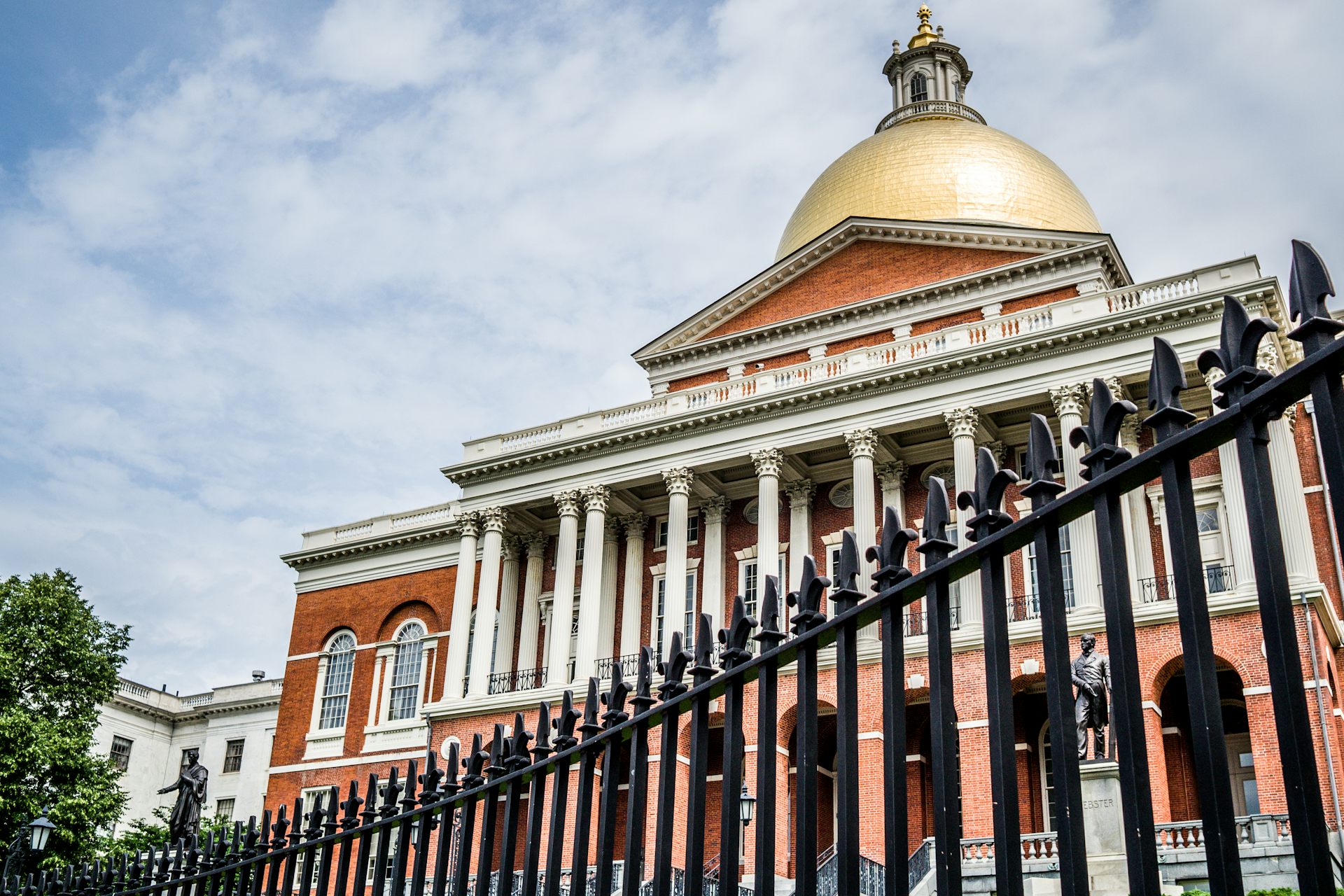Turkey's presidential election – how Erdoğan defied the polls to head into runoff as favorite
Turkish voters will be heading back to the polls on May 28 after no candidates managed to gain more than half the votes. But incumbent Recep Tayyip Erdoğan was boosted by a stronger-than-expected showing.

Turkey is heading toward a presidential runoff election on May 28, 2023, after no candidate won more than half the votes in the first round – the barrier needed to be declared an outright winner.
Incumbent Recep Tayyip Erdoğan, who has ruled the country for two decades, defied polls by coming closest. He will now face off against opposition leader Kemal Kılıçdaroğlu in a second-round vote.
The Conversation asked Salih Yasun, an expert on Turkish politics at Indiana University, to talk us through the first-round results, and what will come next.
1) What happened in the first round of voting?
Turkish voters participated in two elections on May 14, 2023: one for the presidency and one for the nation’s parliament. As of writing, 99.9% of ballot boxes have reported.
With 49.6% of the vote, President Erdoğan’s governing coalition – which consists of his own conservative Justice and Development Party, or AKP, the nationalist MHP and smaller Islamist parties – earned a majority of seats within the parliament: 322 of the available 600. Although the de jure authority of parliament was curtailed substantively as the result of a 2017 referendum, controlling it would enable Erdoğan to govern without worrying about any serious challenge from parliament. If he wins the presidency, he will have a solid legislative support for his agenda.
In the presidential race, Erdoğan earned 49.5% of the vote, which means that he will have a runoff election on May 28, 2023, with Kılıçdaroğlu, who earned 44.9% of the vote. Kılıçdaroğlu is the joint candidate of “the table of six” coalition – an opposition bloc that consists of parties that are secular and nationalist as well as conservative – two of which have split from the AKP.
In the second round, whoever reaches 50% will become the president. But Erdoğan is heading into the vote with a clear advantage and momentum, especially given that polls before the vote suggested he would come second in the first round.
2) Why did Erdoğan do better than predicted?
Multiple reasons can account for Erdoğan’s strong performance. Although Turkish citizens have suffered from severe inflation, it appears that Erdoğan’s message of putting national security interests above economic challenges convinced a substantial portion of his conservative and nationalist base.
This is despite the fact that Erdoğan’s party, AKP, keeps losing popularity, particularly in metropolitan districts. The percentage of nationwide support for AKP declined from 42.5% in 2018 to 35.6% in 2023.
However, Erdoğan manages to remain afloat by adding small Islamist and nationalist parties to his coalition. By doing that, he has allowed his base to vote for coalition parties other than the AKP while maintaining their support for his own candidacy within the presidential race. It is not uncommon to hear people in Turkey complain about corruption and dissatisfaction in the country’s economic performance who keep voting for Erdoğan as national leader.
Meanwhile, regions hit by an earthquake earlier this year did not punish Erdoğan for the poor initial response as severely as many had expected.
I should also add that Turkey’s commitment to free and fair elections has been questioned. Erdoğan uses state resources and his control over the judiciary and a significant portion of the media for his own advantage. In a few instances, the opposition candidates were intimidated by vigilantes.
There were also missteps by his main rival that undermined his turnout. Kılıçdaroğlu has been the head of the Republican People’s Party or CHP, since 2010. Under his chairmanship, his party has lost every single election and referendum except for a 2019 local ballot. Kılıçdaroğlu did not allow any public debates on his candidacy and blocked the nomination of two popular mayors, Ekrem İmamoğlu and Mansur Yavaş, early on.
He tasked the “table of six” leaders with the nomination process, which was a means for him to bypass the need for primary elections and earn some mandate for his candidacy. He promised the four small parties various positions, including ministers, vice presidents and the nomination of 77 parliamentarians on CHP’s list, in order for them to nominate him. Meanwhile he used the support of these parties to pressure Meral Akşener, the leader of IYI Party, to accept his candidacy. Although Akşener reluctantly accepted, a substantive base of IYI voted in the presidential ballot for the third candidate, Sinan Oğan, who earned 5.2% of the vote.
Over the years, Kılıçdaroğlu has been accused of establishing a patrimonial and hierarchical governance structure, rewarding his loyalists and isolating people who dared to challenge him. Media outlets that are financially supported by his party have fired journalists critical of him. As a result, his own media did not critically evaluate his candidacy, and news of his popularity may have been inflated.
Meanwhile, the ideological orientation of CHP – social democracy – has, I believe, gradually eroded, with the party becoming more of a catchall organization without a clear direction.
Added to this, a substantial number of voters may have been wary of a coalition government. Turkish citizens suffered substantively during the coalition governments from 1990s through 2002 because of political instability and economic recession.
Finally, turnout in Kurdish-majority cities remained rather low, and nationalist voters wary of any ties to HDP, the Kurdish nationalist party, shied away from voting for Kılıçdaroğluu.
3) What happens next?
The better-than-expected performance from Erdoğan puts him in the driver’s seat heading into the second-round vote.
An Erdoğan win would consolidate his authoritarian style of governance. It could also further weaken the opposition, with indicators that the two main opposition parties may experience a leadership struggle.
Meanwhile, Turkish citizens will go to the ballot once again on March 31, 2024, for local elections. The two main opposition parties previously nominated joint candidates, who succeeded in winning mayoral positions in key metropolitan areas. A potential division within the opposition could enable Erdoğan’s governing AKP to expand its control over these major municipalities, such as Istanbul and Ankara.
Moving forward, this would be very bad news for the opposition. Erdoğan has been in power since 2002. He has ruled the country longer than any other Turkish president and even many Ottoman sultans. An additional five years would allow him to consolidate his authority within the state institutions even further.
Salih Yasun does not work for, consult, own shares in or receive funding from any company or organization that would benefit from this article, and has disclosed no relevant affiliations beyond their academic appointment.
Read These Next
Whether it’s yoga, rock climbing or Dungeons & Dragons, taking leisure to a high level can be good f
When a hobby becomes something larger, with a focus on improving skills and developing deep knowledge,…
There’s a competition crisis in America’s state legislatures – and that’s bad for democracy
In dozens of states, an increasing number of legislative seats are going completely uncontested by one…
Aldi is coming to Colorado, and the disruption could lead to lower food prices
The grocer offers low prices and plans to build its own distribution center.






